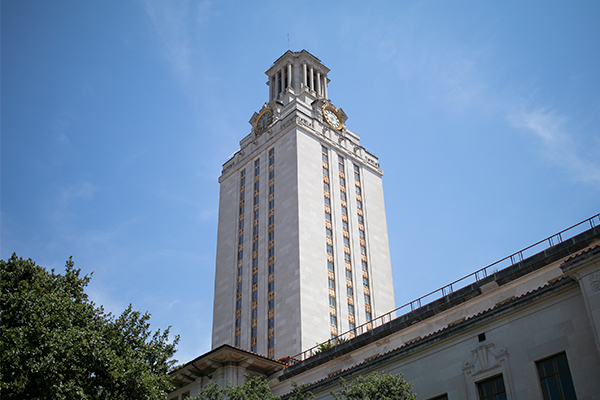Undergraduates can pass/fail three classes across the fall 2020 and spring 2021 semesters and still count them toward degree requirements, the interim executive vice president and provost said in a campuswide message Wednesday morning.
The UT Faculty Council passed a resolution Monday to allow fall 2020 undergraduate classes to be taken pass/fail and contribute to degree progress. UT President Jay Hartzell approved a modified policy allowing students to pass/fail three total classes from both the fall and spring semesters until after final grades are released in the spring.
Students can meet with their advisers from Jan. 6 to June 15 about utilizing the COVID-19 pass/fail option, UT provost Daniel Jaffe said in the message.
Standard pass/fail options are also available for the fall and spring. On student transcripts, classes taken under standard pass/fail and COVID-19 pass/fail will both be labeled with a grade of ‘CR’ for pass or ‘F’ for fail, Joey Williams, director of communications for the Office of the Executive Vice President and Provost, said in an email.
Q-drops during the fall and spring semesters will be labeled non-academic, meaning they will not count toward the six-drop limit students normally have, and the deadline has been extended to Dec. 9. Q-drops and one-time-exception drops completed earlier in the semester will be rewritten as non-academic. The spring Q-drop deadline was also extended until May 11.
“We understand that this semester has been enormously difficult, in your classes and in your personal lives,” Jaffe said. “For many of you, the cumulative toll and anxiety has been amplified by concern about grades, workload, and the impact on your GPA.”
UT Student Government, the Senate of College Councils and the Graduate Student Assembly passed a joint resolution earlier this month supporting pass/fail expansions for all classes in both semesters. The joint resolution gained over 10,000 supporting signatures.
SG and Senate released a joint statement after Jaffe’s email that said the finalized policies were a “compromise” with what they asked the University to enact.
“Our members and leaders continued to push for students’ best interests as shown by our data and resolutions; however, this was the compromise that administrators reached,” the statement said. “Ultimately, we hope that these accommodations will help students who are in need of additional support this semester.”
Jaffe said several resources, such as Student Emergency Services, Services for Students with Disabilities and the Counseling and Mental Health Center, are available to help students during the pandemic, but not all students may know about these resources.
“We also realize that not all students know about the options in place for getting support and adjusting your schedules to fit your academic needs,” Jaffe said. “We are committed to working with student leadership in the coming months to ensure that we communicate effectively about such resources and options.”
SG and Senate said they were grateful for students whose support helped motivate the University to make policy changes and faculty members and administrators who heard students’ concerns.
“Without student voices, a major policy change such as this one would have never reached the desk of the president,” the statement said. “This win is yours. As a collective, students made a widespread and direct change to university-wide policies that determine our academic futures, albeit at a compromise.”
Editor’s note: This story has been updated to include a statement from legislative student organizations and a comment from a UT spokesperson.





















